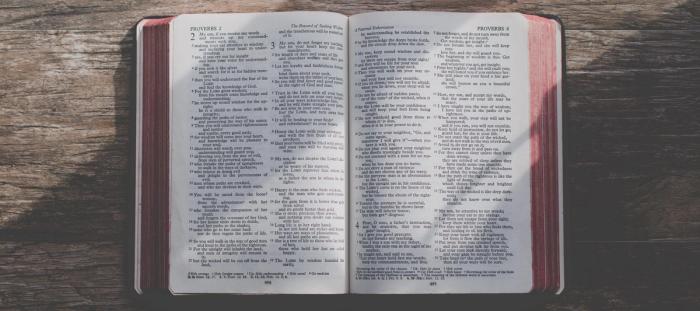Have you ever had a package delivered to your door, opened it up, and thought, “Wait, I didn’t order this. I have no idea what this is!” Sometimes it can seem like that when we read parts of the Bible. We struggle to see how it has anything to do with us. Sometimes it seems like parts of Scripture made it in that surely got the wrong address.
This sense of disorientation is especially acute when we read the Old Testament. There are three stories to remember that help us make sense of the Old Testament and understand how it has everything to do with us.
Remember the Then-and-There Story
The Bible didn’t just drop into our laps one day. It was written over thousands of years to real people in real life circumstances. As you read the Old Testament, you should first look at the then-and-there story of the people who first received the portion of Scripture you’re reading.
For example, when reading Israel’s story of suffering in the book of Exodus, understand that this isn’t just the story of the nation of Israel under oppression in Egypt. It was written for Israel as a record of God’s faithfulness to fulfill his promises to them.
It’s tempting to jump straight to personal application from principles gleaned reading their story. But this is not just a story about how God hears your cries when you are suffering–as true as that is! It’s first the story of Israel’s faithful God who made promises he intended to keep. The Exodus from Egypt is the story of God fulfilling his promise to the patriarch Jacob: “I myself will go down with you to Egypt, and I will also bring you up again” (Gen. 46:4).
This means that all of God’s promises will be fulfilled, including the covenant promise he remembered as he heard their groaning pleas for deliverance: “And God heard their groaning, and God remembered his covenant with Abraham, with Isaac, and with Jacob” (Exod 2:24). This is where the story begins to connect with us. That covenant promised that God’s blessing to his people would extend beyond them. It would bring blessing to the whole world (Gen. 22:18).
Observing God’s faithfulness in the context of his promises leads us beyond simple truths to learn and apply to our lives. It leads us into the redemption story of Scripture.
Remember the Redemption Story
Every twist and turn of the biblical story leads to redemption in Jesus Christ. Even in the things revealed for the sake of the original readers with application to their own story, every part of Scripture contributes to this grand redemption story of grace in Jesus. It’s a story you have to remember in order to make sense of the Old Testament.
The lesson of God’s promise-keeping faithfulness in the Exodus story is important to remember, because the promises to Israel are key to this story of redemption that unfolds throughout their history. Yes, Israel was given great hope in their subsequent suffering by this record of God’s faithfulness. But it’s bigger than that.
God’s time-and-again faithfulness to Israel advanced his Genesis 22:18 promise that through Abraham all the nations would be blessed. It furthered a story that would be fulfilled in Jesus: “For all the promises of God find their Yes in him” (2 Cor. 1:20).
Remember Your Own Story
Once you’ve considered the then-and-there story of the original readers, and how their story contributes to the larger story of redemption, you’re ready to consider how it all relates to your own story. The point in the first then-and-there story refracted through the fullness of the redemption story is the point for your story. All Scripture is given, among other things, for our reproof, correction, instruction in righteousness, and hope (2 Tim. 3:16, Rom. 15:4). So, in this case, how does God’s covenant-keeping faithfulness to Israel point to Jesus and, through Jesus, to your own story?
The night of the Exodus, God sent a final plague of death on Egypt (Exod. 12). But to shield his people from his judgment on the land, he provided a substitute to stand between them and death. As the people sheltered under doorposts painted with the blood of a substitute lamb, God showed his people even in the face of death that he would provide everything needed to faithfully fulfill his promises.
That faithful promise-keeping is ultimately fulfilled in Jesus (1 Cor. 5:7). It’s by seeing the promise-keeping faithfulness of God fulfilled in Jesus that we find hope in our own suffering: “If God is for us, who can be against us? He who did not spare his own Son but gave him up for us all, how will he not also with him graciously give us all things?” (Rom. 8:31-32). That kind of faithfulness shows us that nothing in all creation can stop the faithful love of God for his children (Rom. 8:38-39).
Once you’ve followed the path through the then-and-there story and the redemption story, you see not only how the Old Testament makes sense, but also how it makes a difference in your own story.






